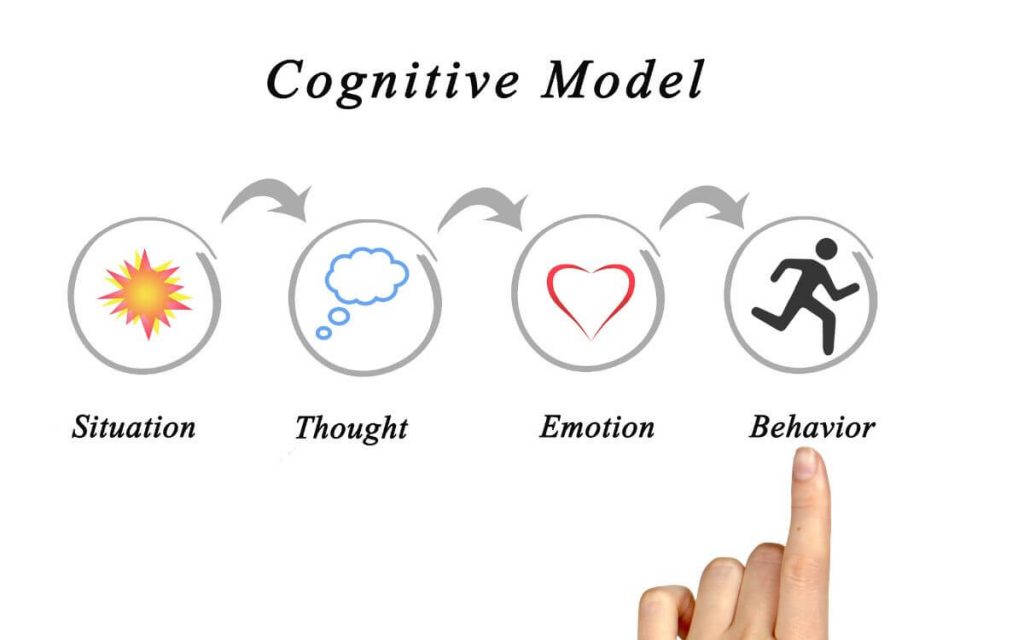Is there a brain fog test?
Unfortunately, a brain fog test does not exist. Commonly associated with fibromyalgia, the fog has no definitive test.
Cognitive tests are available for fibromyalgia patients, including the Cognitive Visualization Scale (CVS). These tests measure cognitive functioning in terms of memory, concentration, clarity of thought, and speed of processing information.
The results can provide an indication of how much foggy brain a patient is experiencing, but they cannot definitively diagnose that fog.
What is that beast?
In order to address it and fully understand why there is no fog test, we need to answer the following questions:
- What is brain fog?
- What is fibro-fog?
- How long does brain fog last?
- How severe can brain fog be?
- How does brain fog impact the person?
- What is the treatment?
What is brain fog?
Brain fog is a condition that can lead to difficulty concentrating, memory lapses, and an inability to focus on tasks. It has been associated with chronic fatigue syndrome, depression, and fibromyalgia. It can also be caused by lack of sleep, stress, and poor diet.
What is fibro-fog?
If the fog is associated with fibromyalgia, it is sometimes referred to as “fibro fog” or “cognitive fibromyalgia”.
Fibro-fog is a symptom associated with fibromyalgia. It involves fog-like symptoms such as difficulties concentrating, memory lapses, and an inability to focus on tasks. Fibro-fog is usually more severe than the fog caused by other conditions and can significantly impact the quality of life.
If you want to learn more about fibromyalgia, I wrote a “Fibromyalgia for Caring Partners” e-Book.
You can get the 3 First Chapters of the e-Book for FREE, and if you like it, you’ll get a Whopping 33% Discount on the Whole Book, plus discounts on other helpful tools. You have nothing to lose but a lot to gain.
These chapters alone explain how to accept the new normal, and understand fibromyalgia, and its diagnosis. They include:
- The new you.
- The new her.
- The new reality.
- Introduction to fibromyalgia.
- What is fibromyalgia?
- The early days.
- When you first realize something is wrong.
- Spotting the signs that something is wrong.
- Coming to terms with a chronic illness.
- The role of partner in fibromyalgia.
- The process of getting diagnosed.
Get Your 3 FREE Chapters!
Fibromyalgia for Caring Men

How long does brian fog last?
The duration of the fog can vary from person to person and depends on the underlying cause. In many cases, the fog can be managed or alleviated with lifestyle changes such as getting enough sleep and reducing stress.
Medication may also be used for more severe cases to help manage brain fog symptoms. This depends on the individual and what underlying condition may be causing it.
In some cases, brain fog may only last for a few days or weeks (my wife’s case) while for other people brain fog may persist for months or years at a time. It is important to seek medical advice if brain fog persists or keeps returning.
How severe can brain fog be?
The severity of brain fog can vary from person to person, so it’s important to speak with a healthcare professional if brain fog symptoms persist or keep returning.
In most cases, brain fog is mild and can be managed with lifestyle changes such as getting adequate rest, reducing stress levels, and eating a balanced diet. Other treatment options may include medications, cognitive behavioral therapy (CBT), and other therapies.
Mild brain fog leads to feelings of confusion, forgetfulness, and various difficulties concentrating. Severe brain fog can cause significant cognitive impairment and interfere with daily life. If brain fog is severe and persists, it is important to seek medical advice.
How does brain fog impact the person?
Brain fog can impact people in different ways. It may cause depressive symptoms, poor sleep, sleep deprivation, cognitive difficulties, cognitive dysfunction, memory problems, poor concentration, and other symptoms.
It can cause people to become easily distracted, have memory issues, problems with constructing the right words when speaking, mood swings, and sleep apnea which people suffering at night hold their breath and struggle to get enough oxygen.
Physical activity can also be affected along with other symptoms.
What is the treatment?
The treatment is very important for those who suffer. In order to determine what type of treatment you have will depend on your symptoms, your cognition, the underlying issue, other medical conditions, your physical activity, whether you do regular exercise, the certain foods you eat, and more.
To determine this, your healthcare provider will check if you have any nutritional deficiencies, how you live your everyday life, your actual medical condition, if you have memory problems, poor concentration, your sleep pattern, your stress levels if you experience long covid, and other factors.

Different types of brain tests.
While brain fog does not have a definitive test, cognitive tests can help provide an indication of brain fog severity and aid in diagnosing the underlying cause.
There are several brain tests available to measure cognitive functioning and brain fog symptoms. These include memory tests, concentration tests, attention span tests, reaction time tests, and brain imaging.
These tests can provide valuable information about brain fog levels and underlying conditions that may be causing it. Some of them include:
- cognitive functioning tests
- memory tests
- concentration tests
- attention span tests
- reaction tests
- clarity of thought tests
- speed of processing information tests
- brain imaging
Now, let’s discuss them one by one…
Cognitive functioning tests.
These tests measure brain functions such as memory, concentrating abilities, focus, and speed of processing information. They are typically used to detect brain fog levels and diagnose underlying conditions.
Memory tests.
Memory tests are primarily used to evaluate short-term memory, which can be impacted by brain fog. These tests measure the ability to recall information after a brief period of time.
Concentration tests.
When it comes to oncentrating tests measure the brain’s ability to focus for a period of time without being distracted. These tests are commonly used in brain fog evaluations.
Attention span tests.
Attention span tests measure how long an individual can concentrate on a task or activity before becoming distracted. This type of test is important for determining brain fog levels.
Reaction time tests.
Reaction time tests measure how quickly an individual responds to stimuli or cues presented by the tester. These are often used to evaluate brain fog.
Clarity of thought tests.
Clarity of thought tests measures how clearly an individual can think and process information. This type of test is important for assessing brain fog severity.
Speed of processing information tests.
Speed of processing information tests measures how quickly an individual can understand and recall new information. This is useful for evaluating brain fog levels.
Brain imaging.
Brain imaging, such as MRI scans or PET scans, can provide a detailed look at the brain and its functions. This type of imaging may be used in combination with cognitive testing to assess brain fog severity and diagnose underlying conditions.
In conclusion, there is no definitive brain fog test available but cognitive testing can help assess brain fog levels. Brain imaging may be used in combination with brain tests to provide a more detailed picture of brain fog and underlying conditions. It is important to seek medical advice if brain fog persists or keeps returning.
Once the underlying cause of brain fog is identified, treatment can begin to help reduce brain fog symptoms.

What is cognitive impairment?
Cognitive impairment is a decrease in brain function that can impact memory, problem-solving, attention, and language. It can be caused by a variety of medical conditions and neurological disorders, and brain fog can be a symptom of cognitive impairment.
Brain function is often evaluated through brain tests and brain imaging. It can be managed through lifestyle changes, medication, cognitive training, or other treatments depending on the specific condition and brain fog severity.
The impact on memory, concentrating ability, focus, and speed of processing information can be evaluated through brain tests, two of which are an MRI and PET.
MRI and PET scans.
Brain imaging such as MRI scans or PET scans can provide a detailed look at brain structure and brain activity. This type of imaging can be used to diagnose brain fog (or fibro-fog) and cognitive impairments, as well as underlying conditions such as fibromyalgia and brain injuries.
MRI is short for magnetic resonance imaging, and it uses powerful magnets to take detailed pictures of brain tissues. PET stands for positron emission tomography, and it is used to assess brain activity, allowing doctors to diagnose brain fog and cognitive impairments.
Overall, brain tests and brain imaging are important tools for assessing brain fog and cognitive impairment. Memory, concentrating issues, focus, and speed of processing information can be evaluated through brain tests, while brain imaging like MRI scans or PET scans can provide a detailed look at brain structure and brain activity.
Mental fatigue and mental clarity.
When it comes to mental health, brain fog is often associated with mental fatigue and impaired cognitive functioning. Mental fatigue can impact an individual’s attention span, memory, decision-making, and problem-solving abilities.
Conversely, mental clarity is the ability to think clearly and recall information easily. It can also refer to the capacity to concentrate and focus on tasks. Brain tests may be used to assess mental fatigue and mental clarity in order to diagnose brain fog and the impairment of cognition.
Mental health.
The fog we talk about can cause different sleep disorders because the brain puzzles over the confused feelings and can’t shut down properly. This leaves you feeling exhausted, which affects your mental health in various ways such as depression, anxiety, and exhaustion.
Depressive symptoms and the foggy brain go hand in hand, as the fog leads to greater feelings of depression. Anxiety disorders also have a relationship with fog, as the brain struggles to process information and comprehend situations.
Cognitive dysfunction can also cause physical problems such as headaches, fatigue, muscle pain, and other symptoms due to the brain becoming overworked trying to process information.
When it comes to quality of life, it can be very frustrating and significantly impact the quality of life for those who deal with the fog. This can lead to a lack of motivation, difficulty socializing, and difficulty achieving everyday tasks.
Research suggests that even such a medical condition like fibromyalgia, or even chronic fatigue syndrome, and multiple sclerosis are linked with fog. Post-traumatic stress disorder, brain injuries, and brain tumors can also cause a foggy brain.

Cognitive function.
Cognitive function is the brain’s ability to think, process, and recall information. Impairments of cognition can lead to fog, which is often characterized by cognitive symptoms such as memory loss, confusion, and difficulty concentrating. In fibromyalgia patients, it can also lead to fibro-fog.
The cognitive function test measures fog’s severity with questions about mental fatigue and mental clarity. This type of test is important for assessing brain fog when used in combination with brain imaging like MRI and PET scans.
Brain fog quiz.
Brain fog quiz is another test that can be used to assess fog’s severity. By doing this as a regular exercise this test includes questions about cognitive symptoms such as confusion, difficulty concentrating, and memory loss.
The quiz is designed to assess cognition by asking questions about cognitive symptoms. Such questions about cognitive symptoms include:
- Do you have any difficulties concentrating?
- Are you easily confused or forgetful lately?
- Have you been feeling mentally fatigued or exhausted for an extended period of time?
- Do you find yourself having some difficulties following conversations or remembering important details?
- Maybe you have sleep problems and sleepless night affects your mood.
The score on the fog quiz can be compared to tests and brain imaging to assess the fog’s severity.
Final thoughts…
The fog is an increasingly common syndrome that is often associated with impairment, mental fatigue, and cognitive dysfunction. It often leads to a variety of physical and mental health problems and significantly impacts an individual’s quality of life.
Various tests such as quizzes, cognitive function tests, and brain imaging can help diagnose the fog severity. It is important to seek medical advice if the fog persists in order to determine the cause and appropriate treatment.
When it comes to fibromyalgia or chronic fatigue syndrome, both are commonly associated with a foggy brain.
Fibromyalgia is linked to fog because of its chronic pain, fatigue, and other symptoms. It is a chronic condition that affects the brain’s ability to process pain signals from the body.
The widespread pain, the fog, and other symptoms can also lead to various difficulties such as concentrating, feeling confused, and poor mental clarity.
When it comes to chronic fatigue syndrome, exhaustion and fog are two of the main symptoms. It can cause difficulties in concentrating and poor mental clarity.
By understanding brain fog, identifying its cause, and treating it appropriately, individuals can improve their health and quality of life. It is important to consult with a medical professional to discuss the fog further and determine the best course of action.


About Me
Hi, I’m Lucjan! The reason why I decided to create this blog was my beautiful wife, who experienced a lot of pain in life, but also the lack of information about endometriosis and fibromyalgia for men…
